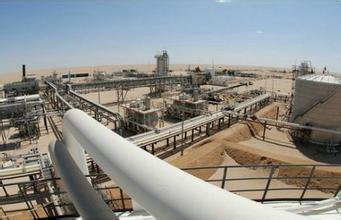(单词翻译:单击)
The price of oil keeps on falling; the shale gas boom has reduced the price of natural gas in the US to a third of that in France; Germany has appealed to Sweden for its support in expanding two coal mines; and the EU’s effort to switch to clean energy is troubled. For companies wondering where to locate, the world has turned upside down.
油价持续下跌,页岩气繁荣让美国天然气价格降至法国价格的三分之一;德国恳请瑞典对扩建两座煤矿的计划予以支持,欧盟(EU)转向清洁能源的努力麻烦不断。对那些还在考虑该在哪里建厂的公司来说,世界已经发生了天翻地覆的变化。

Cheap energy is the new cheap labour. For two decades, the biggest driving force in industrial globalisation was the gap in the price of labour between the developed world and China. That induced many industries – textiles, electronics and others – to shift production from high-cost factories in the US and Europe to places where people would work for a fraction of the cost.
20年来,工业全球化最重要的驱动力就是发达世界与中国之间的劳动力价格差距。这种差距促使纺织、电子等许多行业,将生产从美国和欧洲生产成本高昂的工厂,转移到那些劳动力成本仅为欧美零头的地区。而如今,廉价能源开始代替廉价劳动力发挥这一作用。
Now, as the wage arbitrage between the north and south narrows, the energy gap is widening. Wage rates adjusted for productivity in China have risen to more than half the level in the US, according to Boston Consulting Group. Meanwhile, energy prices have been falling and the Opec oil-producing countries have failed to halt the decline. Some fortunate countries, especially the US, are gaining from both of these trends at once.
现在,薪资的南北差距不断缩小,能源价格差距却在日益扩大。波士顿咨询公司(Boston Consulting Group)的数据显示,中国经生产力调整后的工资水平已升至美国水平的一半以上。与此同时,能源价格持续下跌,欧佩克(OPEC)石油生产国也未能阻止这种下跌。一些幸运的国家(尤其是美国)同时受益于这两种趋势。
Although cheap fuel theoretically helps every energy-dependent country, the gains are distributed unevenly. The big beneficiary, thanks to shale natural gas, is the US. Not only is it helped by companies bringing manufacturing home but it is also an oasis of cheap gas. That is luring energy-intensive industries such as chemicals, petrochemicals, aluminium and steel.
尽管能源价格下跌理论上有利于所有能源依赖国,但各国的受益程度并不一样。得益于拥有页岩天然气,美国是主要的受益者。不仅公司将制造业生产迁回美国国内,而且美国还拥有丰富的廉价天然气。这对化工、石化、铝和钢铁等能源密集型行业很有吸引力。
Europe made the wrong bet. In the long run, making fossil fuels more expensive by subsidising renewables and charging for carbon emissions could bring the EU a steady supply of clean, cheap energy. At the moment, it is nullifying the benefits of lower energy prices and giving European companies an incentive to relocate.
欧洲押错了注。长期而言,通过向可再生能源提供补贴和对碳排放收费来让化石燃料变得更昂贵,可能为欧盟带来稳定的廉价清洁能源供应。但就目前而言,它抵消了能源价格下跌的益处,并促使欧洲公司撤离欧洲。
“There are no energy-intensive investments taking place in Europe now,” says Dieter Helm, professor of energy policy at the University of Oxford. “Why would you locate a new investment in a place with both high labour costs and high energy costs, many of which are self-inflicted?”
牛津大学(Oxford university)能源政策教授迪特尔•赫尔姆(Dieter Helm)表示:“欧洲现在没有任何能源密集型企业的投资。为什么要在一个劳动力成本和能源成本全都很高(很大程度上是它自己造成的)的地区进行新的投资?”
Plainly, it is a lot more expensive and harder to build a new aluminium-producing plant or chemical works in another country than to outsource textile or electronics manufacturing to an existing plant in China. These are long-cycle, capital-intensive industries that cannot move on a whim.
显然,在另一个国家新建一个炼铝厂或化工厂的费用和难度,要远比将纺织或电子制造外包给中国现有的工厂大得多。炼铝业等行业是周期较长的资本密集型行业,不可能说迁移就能迁移的。
Energy also takes a lower share of production costs in most industries than wages or raw materials. The EEF, the UK manufacturing body, says that energy comprises 5 per cent or less of costs for 70 per cent of its members. Aluminium-smelting is the biggest fuel-guzzler, at 30 per cent of costs.
在大多数行业的生产成本中,能源所占的份额也比薪资或原材料要小。英国制造业组织工程雇主联合会(EEF)表示,其70%的成员企业,能源成本占总成本比例为5%或更低。炼铝厂是能源消费大户,其能源成本占总成本的比例达到30%。
European countries have tried to shield energy-intensive industries from the costs of switching to renewables. Germany, whose Energiewende policy of obtaining 80 per cent of electricity from clean sources by 2050 is causing intense stresses, has capped renewables charges to heavy industry, despite EU pressure to limit subsidies.
欧洲国家努力避免让能源密集型企业承担转向可再生能源的成本。德国对重工业承担的可再生能源成本设定了上限,尽管欧盟施压要求限制补贴。德国制定的能源转换(Energiewende)政策,要求到2050年有80%的电力来自清洁能源,这一政策引起了强烈不满。
But the pressures are intense and are unlikely to recede. Even if European countries change tack, no large economy can match the US in shale gas. Even when the US starts to export liquefied natural gas to Europe, it will retain a significant cost advantage.
但欧盟施加的压力非常大,且不太可能退缩。即便欧洲国家改弦更张,也没有哪一个大型经济体可以在页岩天然气方面与美国相媲美。即便当美国开始向欧洲出口液化天然气,美国仍将保持巨大的成本优势。
The comparative significance of energy grows as that of wages lessens. The “onshoring” of US manufacturing is assisted by rising wages elsewhere – between 2006 and 2011, Asian wages rose by 5.7 per cent per year, compared with 0.4 per cent in developed economies. Productivity has also risen: an advanced manufacturing plant often employs fewer than 200 people.
美国在能源方面的比较优势日益扩大,而其薪资水平与其他地方的差距则日益缩小。其他地方的薪资水平逐步上升,推动了美国制造业的“回流”——从2006年到2011年,亚洲薪资水平每年增长5.7%,而发达经济体的薪资水平每年增长0.4%。生产率也有所提高:一家先进的制造业工厂的员工人数通常不足200人。
So companies are moving, often by picking the US when they make new investment decisions.
因此,公司正在迁移,在考虑新增投资时,通常会选择投向美国。
BASF, the German chemicals company, is one example: it is allocating a quarter of its 20bn investment budget over five years to the US, and plans to build a $1.4bn propylene site on the Gulf Coast. Natural gas will provide not only the energy but also the chemical raw materials.
德国化工企业巴斯夫(BASF)就是一个例子:该公司打算将5年内200亿欧元投资预算的四分之一投向美国,并计划在墨西哥湾地区建造一个14亿美元的丙烯工厂。天然气不仅能提供能源,还能提供化工原料。
Even if a European company keeps a plant open, it can divert some of the production to the US.
即便一家欧洲公司不关闭本土的工厂,它也可能将一部分生产转移到美国。
Voestalpine, the Austrian steel company, is building a 500m facility in Texas, at which it will make iron for two Austrian steel plants. It will use natural gas to power the blast furnaces in Texas rather than the coking coal it uses in Europe.
奥地利钢企奥钢联集团(Voestalpine)正在美国德克萨斯州建设一家5亿欧元的工厂,工厂将为奥地利两家钢铁厂生产铁矿石。该公司将利用天然气为德克萨斯工厂的鼓风炉提供动力,而不是像它在欧洲的工厂那样使用焦煤。
The temptation for Europe, caught in the middle of transition by unexpectedly low energy prices, is to dismiss such moves as marginal. Only aluminium smelters rely crucially on cheap energy; no company can close a Rhine steel plant for short-term gain; chemicals is a special case, and so forth.
能源价格的意外下跌导致欧洲的能源转型进退两难,眼下它很容易对上述动向不屑一顾,认为这些都无关紧要。它可能会用各式各样的理由安慰自己,比如:廉价能源只对炼铝厂有至关重要的作用;没有哪家公司可以为了短期利益而关闭莱茵河畔的钢铁厂;化工行业是特例;等等。
This would be a mistake. In the long run, there are real risks for countries that impose high costs on themselves while their competitors enjoy low ones. If everyone from the US to China adopted the approach together, it would not matter. But in a world of cheap gas and coal, it does.
这样想是错的。长期而言,在竞争对手享受低成本之际,那些将高成本强加于自己身上的国家,将面临切实的风险。如果从美国到中国,所有国家都这么做,那就没问题了。但在一个拥有廉价天然气和煤炭的世界里,这样做是有问题的。
It is a hard challenge – the US is lucky to have large, accessible shale gas reserves. But Europe must start by realising that the competitive advantage of cheap labour is giving way to that of cheap energy. Turning a blind eye to that fact will not work.
这是一项严峻的挑战——美国幸运地拥有了大规模可开发的页岩气储备。但欧洲必须做的首先就是,意识到廉价劳动力的竞争优势正让位于廉价能源。无视这一事实是没有用的。


